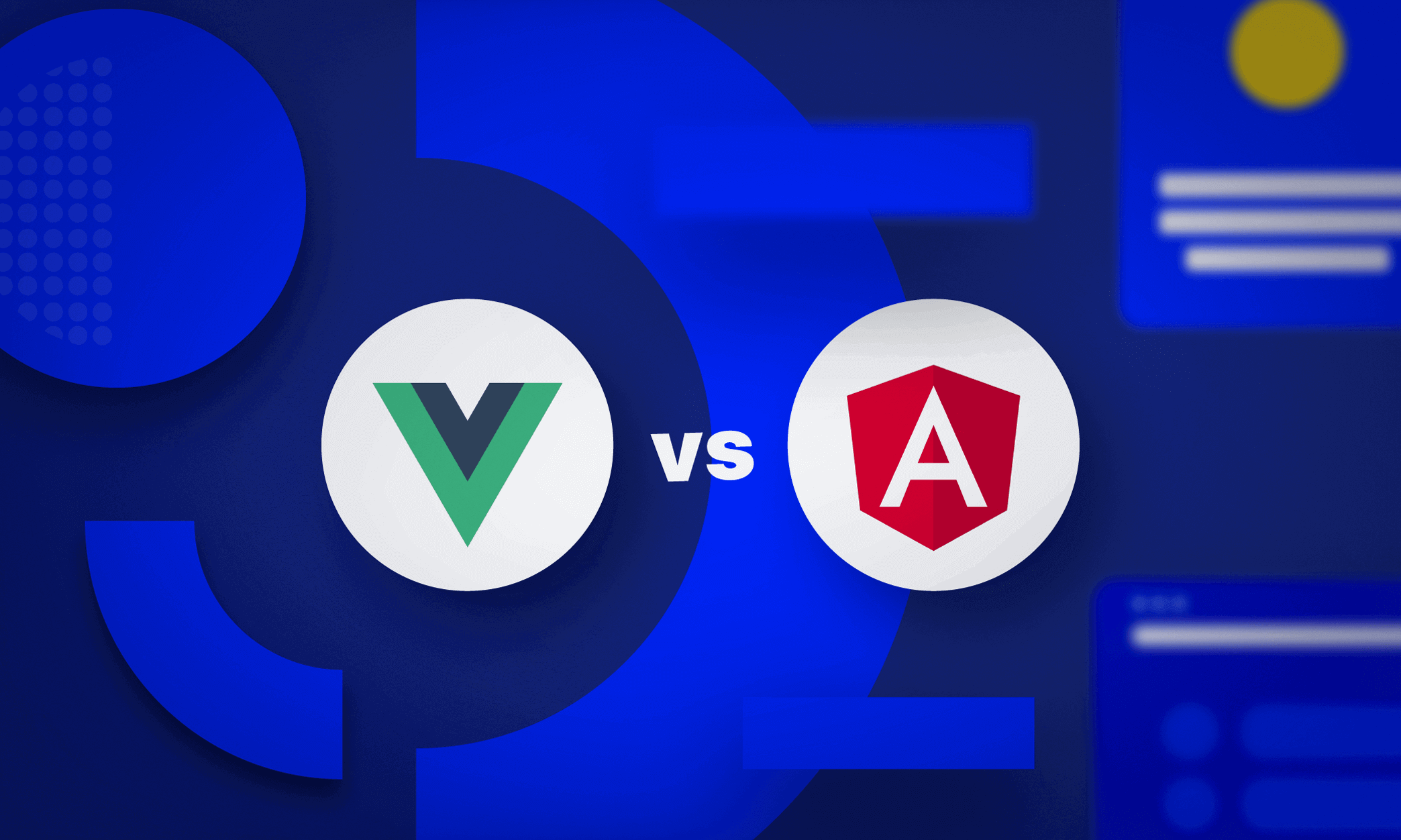
Angular vs Vue: Which framework to choose in 2024
May 07, 2024The world of frontend development has witnessed a dramatic transformation since the era of jQuery, with JavaScript frameworks like Angular and Vue leading the charge towards more dynamic and responsive web applications. As we navigate through 2024, the debate continues to rage on: Angular vs Vue, which framework should developers embrace? Let's delve deeper into these two powerhouses to unravel their strengths and applications.
Angular: The robust giant
Angular, born from the ashes of AngularJS, emerged as a formidable contender in the frontend development landscape. Powered by TypeScript, Angular offers a structured approach to building scalable web applications. Its comprehensive suite of tools and libraries, coupled with two-way data binding, empowers developers to create dynamic user interfaces effortlessly.
The Angular community boasts 93.3k stars on GitHub, indicating a substantial following among developers worldwide. High-traffic sites often gravitate towards Angular for its stability and performance, making it a preferred choice for enterprise-level applications.
Vue: The agile innovator
On the other end of the spectrum lies Vue, a lightweight yet powerful JavaScript framework celebrated for its flexibility and simplicity. Vue's progressive nature allows developers to integrate it seamlessly into existing projects without compromising on core functionalities. With a focus on decoupling and extensibility, Vue enables the creation of modern SPAs and frontend applications with ease.
Vue's popularity is reflected in its community metrics, with over 206k stars on GitHub and a growing number of forked projects. While its market share may not surpass Angular's, Vue's appeal lies in its agility and adaptability, making it a favourite among developers seeking rapid prototyping and customisation.
A quick read: The rise of No-Code platforms.
Market Usage and Trends
Angular holds sway over high-traffic websites, with a market share of 22.96% among developers globally. Its robust architecture and comprehensive features make it a go-to choice for complex web applications requiring scalability and reliability.
On the other hand, Vue boasts over 1.5 million successful websites globally, with a majority favouring Vue v2. Despite its smaller market share compared to Angular, Vue's steady growth and enthusiastic community support signify its relevance and potential for the future.
Choosing the Right Framework
When it comes to choosing between Angular and Vue, several factors come into play. For enterprise-level applications demanding scalability and strict architecture, Angular emerges as a compelling option. Its established ecosystem and backing from Google instil confidence in web developers tackling complex projects.
However, for startups and projects emphasising agility, customisation, and rapid development cycles, Vue shines as a versatile framework. Its intuitive syntax and progressive nature make it ideal for teams seeking quick iterations and seamless integration with existing codebases.
Ultimately, the choice between Angular and Vue hinges on the specific requirements of the project, the development team's expertise, and the long-term vision for the application. Both frameworks offer unique strengths and cater to diverse development philosophies, ensuring a vibrant and competitive frontend ecosystem in 2024 and beyond.
In conclusion, Angular and Vue stand as pillars of modern frontend development, each offering distinct advantages and use cases. As web developers navigate the evolving landscape of web technologies, understanding the nuances and capabilities of these frameworks is essential for delivering exceptional digital experiences in the years to come.
